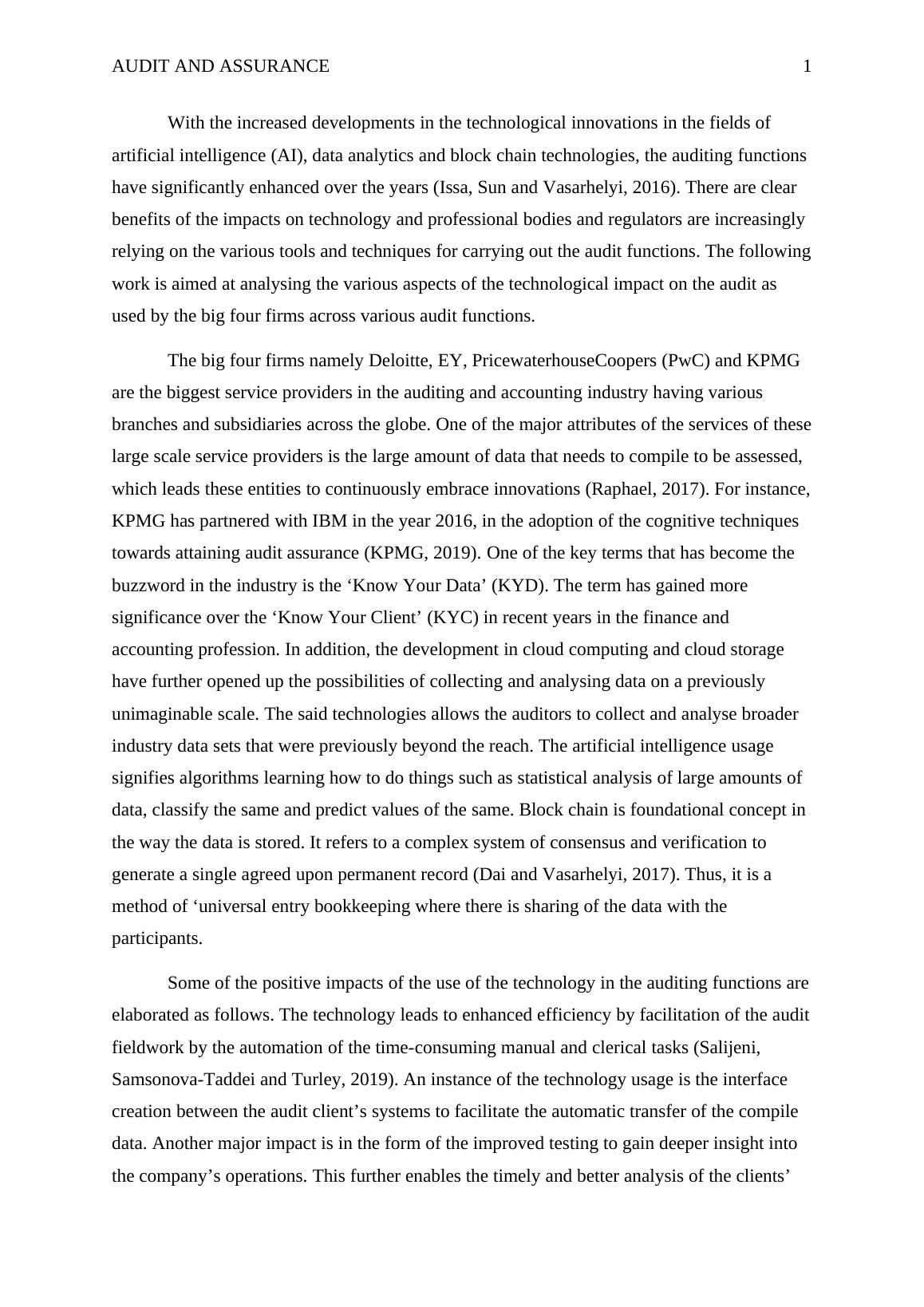Technological Impact on Audit Functions: Analysis of Big Four Firms
3 Pages1053 Words286 Views
Added on 2023-06-04
About This Document
This article analyses the impact of technology on audit functions used by the big four firms. It discusses the benefits of technology, positive impacts, and future trends in the field of auditing.
Technological Impact on Audit Functions: Analysis of Big Four Firms
Added on 2023-06-04
ShareRelated Documents
End of preview
Want to access all the pages? Upload your documents or become a member.
The Impact of Technology on Auditing: Current and Future Position
|9
|3392
|172
Auditing and Assurance Services: Analysis of Factors Impacting Audit Quality in Australia
|13
|3354
|306
Application of Information Technology on Auditing
|9
|1791
|164
The auditing and assurance services
|12
|3225
|14
Issues Related to Audit Quality in Australia
|13
|3391
|89
Technology in Audit Engagements
|10
|2057
|236

